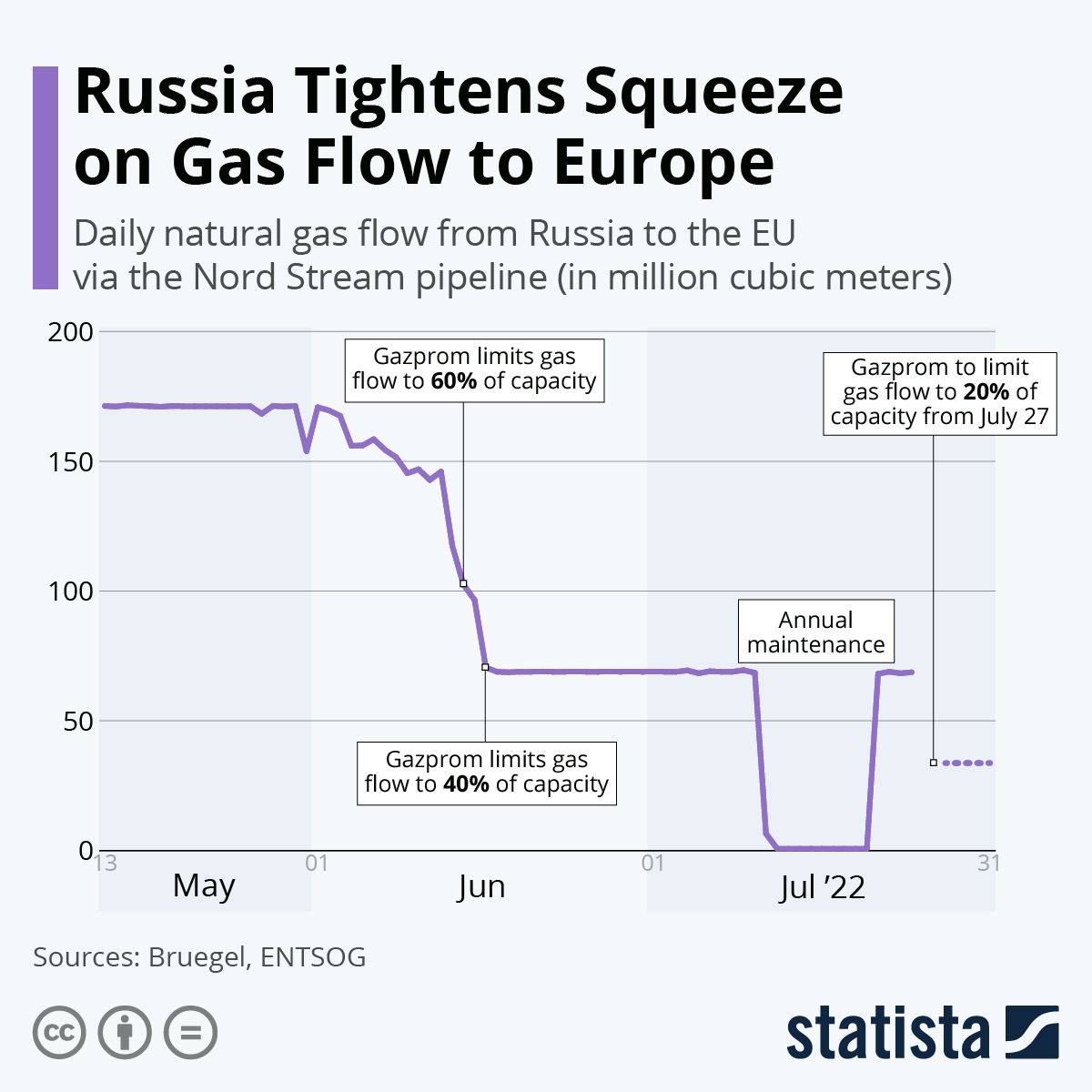Just a few days after resuming gas deliveries to the EU via the Nord Stream 1 pipeline following an annual maintenance shutdown, Russia’s state-owned gas provider Gazprom announced that it would further limit gas flows through the vital pipeline connecting Russia and Germany. Citing technical issues and sanction-related delays in delivery of a turbine engine, Gazprom said on Monday that daily throughput would be reduced to 33 million cubic meters or about 20 percent of its capacity starting Wednesday.
Robert Habeck, German Minister for Economic Affairs and Climate Action, was quick to refute Gazprom’s claims, criticizing the gas giant for repeatedly using faulty or missing turbines as a pretext to squeeze Russian gas supplies to the EU. “This is economic warfare and Putin uses the means that he has at his disposal. This is not a new situation and not a surprise,” Habeck said on Tuesday. As the following chart based on data complied by Bruegel shows, Gazprom had previously curbed gas deliveries through North Stream 1 to 60 and then 40 percent of capacity in June, claiming that European sanctions against Russia prevented the delivery of a gas turbine that had been repaired in Canada.
In response to Gazprom’s latest announcement, the EU agreed on a plan to reduce natural gas consumption by 15 percent compared to the average of the past five years between August 1 and March 31, 2023. “The EU is united and solidary. Today’s decision has clearly shown the member states will stand tall against any Russian attempt to divide the EU by using energy supplies as a weapon,” Jozef Síkela, Czech minister of industry and trade, said in a statement.




















